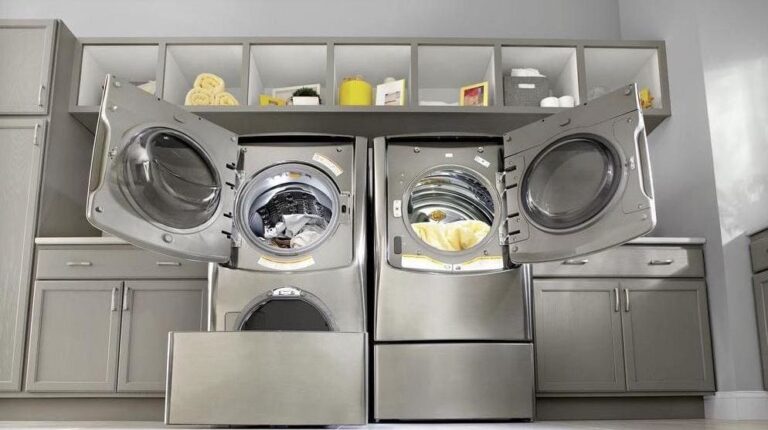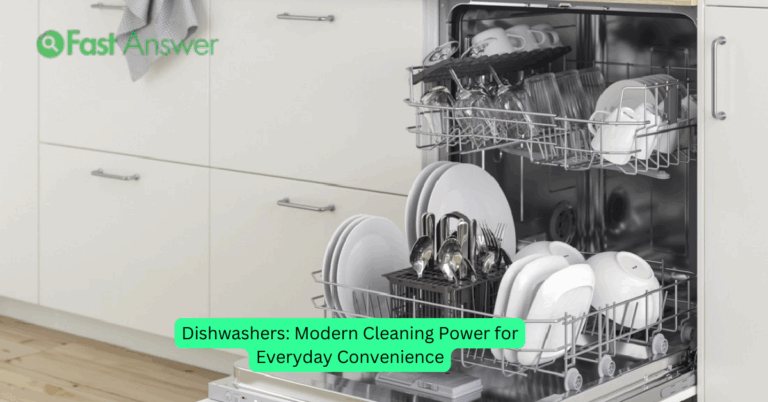Average Lifespan of Household Appliances: How Long Can You Expect Your Appliances to Last?
When you invest in household appliances, it’s important to know how long you can expect them to last before needing replacement. Understanding the average lifespan of appliances like refrigerators, dishwashers, and washing machines can help you plan for maintenance, repairs, or replacements, allowing you to make more informed decisions and avoid sudden costs. This article will explore the typical lifespans of various household appliances and offer tips on how to extend their life, so you can enjoy reliable performance without unexpected expenses.
How Long Do Major Kitchen Appliances Last?
The kitchen is often the heart of the home, and it’s filled with appliances that we rely on daily. Here’s a look at the average lifespan of major kitchen appliances:
- Refrigerators: On average, refrigerators last about 10-15 years. Regular cleaning of coils, checking door seals, and maintaining the proper temperature can extend the lifespan.
- Dishwashers: The average dishwasher lasts around 9-10 years. To maximize its lifespan, ensure regular cleaning of the filters, avoid overloading, and check for leaks or blockages.
- Ovens and Ranges: Depending on the type (gas or electric), ovens and ranges typically last 10-15 years. Regular maintenance, such as cleaning and checking for gas leaks, can help prolong their life.
These kitchen appliances are often the most heavily used in the home, so it’s important to keep an eye on performance and maintain them regularly to ensure they reach their full lifespan.
Laundry Appliances: Washing Machines and Dryers
Washing machines and dryers are household staples that tend to get a lot of use, but how long do they really last?
- Washing Machines: The average washing machine lasts about 10 years. If you maintain it properly by cleaning the drum, using the right detergent, and not overloading it, it can potentially last longer.
- Dryers: Clothes dryers generally last 10-13 years. Routine maintenance such as cleaning the lint filter, checking the venting system, and ensuring the dryer is level can extend its lifespan.
Both appliances are vital for day-to-day living, and by giving them proper attention and care, you can help maximize their operational years.
Small Household Appliances: Lifespan Expectations
Small appliances are essential in many homes but tend to have shorter lifespans due to their frequent use. Here are some common small appliances and their average life expectancy:
- Microwave Ovens: Typically last about 9-10 years. Ensuring proper ventilation and cleaning the interior regularly can prevent premature failure.
- Coffee Makers: The average lifespan of a coffee maker is about 5 years. Keeping it clean and descaling regularly can help maintain performance.
- Blenders: These last about 5-7 years depending on usage. Cleaning after each use and ensuring the motor isn’t overused can increase their lifespan.
These smaller appliances may not last as long as major household systems, but taking care of them and following the manufacturer’s care instructions can help extend their usefulness.
HVAC Systems: When to Replace Your Heating and Cooling Systems
Your home’s HVAC system is essential for maintaining comfort throughout the year. Knowing how long it should last can help you avoid unexpected breakdowns:
- Air Conditioners: The average air conditioner lasts 10-15 years, though this can depend on the quality of the unit and how well it’s maintained. Regularly changing filters, cleaning coils, and scheduling annual maintenance will help your system last longer.
- Furnaces and Heaters: The lifespan of a furnace or heating system is typically 15-20 years. A well-maintained system can run efficiently for much of that time, but if your furnace is nearing 20 years, it might be time to consider a replacement.
By ensuring your HVAC system is regularly serviced, you can avoid costly repairs and extend the life of your heating and cooling systems.
Extending the Lifespan of Your Household Appliances
While understanding the average lifespan of your household appliances is helpful, there are steps you can take to extend the life of these valuable investments:
- Regular Maintenance: Consistent maintenance is key to ensuring your appliances operate efficiently and last longer. Regular cleaning, changing filters, and scheduling professional check-ups can keep appliances in good condition.
- Use Properly: Overusing or misusing appliances can shorten their lifespan. Be mindful of how much weight you put in your washing machine, how often you run your dishwasher, or how high you set your oven temperature. Proper use helps reduce wear and tear.
- Repair Early: If you notice any signs of malfunction whether it’s strange noises, leaks, or inconsistent performance get the appliance checked and repaired promptly. Addressing small issues early can prevent major breakdowns and increase the overall lifespan.
- Invest in Quality: When it’s time to purchase new appliances, consider opting for high-quality models. While they may come at a higher upfront cost, they often have longer lifespans and offer better energy efficiency.
FAQs
Q1: Can I extend the lifespan of my appliances?
Yes! Regular cleaning, proper maintenance, and using your appliances as intended can help extend their lifespan. Also, scheduling repairs for minor issues before they escalate can add years to your appliances.
Q2: How do I know when it’s time to replace an appliance?
If your appliance is approaching or surpassing its expected lifespan, is frequently breaking down, or no longer functions efficiently, it may be time to replace it. Keep an eye on energy usage as well—older appliances tend to consume more energy, which can lead to higher bills.
Q3: Are there appliances that last longer than others?
Yes. Some appliances, like refrigerators and ovens, generally last longer than others. With proper care, you can expect these appliances to last 10-20 years. HVAC systems and water heaters also have longer lifespans when maintained properly.
Q4: How can I make my washing machine last longer?
To make your washing machine last longer, don’t overload it, clean the drum and lint filter regularly, and use the right detergent. Also, balance the load to reduce strain on the machine.
Q5: Should I repair or replace my appliance?
If an appliance is still under warranty or hasn’t reached the end of its expected lifespan, repairing it might be a good option. However, if the repair cost is close to or exceeds the cost of replacement, it’s often more cost-effective to replace the appliance.



